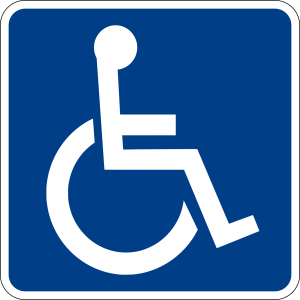There are many people in Illinois that have jobs in which there is a risk for a work-related injury. If you get hurt on the job in Illinois, you are entitled to workers’ compensation. Getting hurt at work is never a pleasant experience because of the pain you go through and the possibility that you may be out of work for a decent amount of time.
Missing that much work due to an injury can put people in a deep financial hole, which is why Illinois requires all employers by law to have workers’ compensation insurance for their employees.
The Process of Filing for Worker’s Compensation
Even though workers in Illinois are entitled to workers’ comp when they are injured on the job, the compensation is not automatic. You must go through the process of filing your claim and notifying your employer, and your request for workers’ compensation can still be denied for various reasons. If you need to file a workers’ compensation claim, it is best to hire a personal injury attorney that understands workers’ compensation laws and can help you navigate the claims process. When you are ready to file your workers’ compensation claim, make sure you follow these tips to ensure that you get the compensation you deserve for your injury.
Workers’ Compensation Benefits in Illinois
In Illinois, there are a variety of benefits that make up workers’ compensation, including coverage for reasonable medical care, temporary total or partial disability, permanent partial or total disability, vocational rehabilitation, and death benefits. None of these benefits are taxable under Illinois law.
Temporary Disability Benefits
If you are eligible for temporary disability benefits, you can receive 66.6% of your weekly pay as long as it does not exceed the maximum set by the State of Illinois. The maximum weekly payment for this benefit is $1,440.60 as of July 15, 2017, and this maximum amount is usually updated every 6 months. You can receive temporary disability benefits after missing three days of work, and if you end up missing more than 14 days of work, you will be compensated the lost wages for the first three days.
Permanent Disability
Permanent disability can be configured in a couple of different ways. You may receive 66.6% of the difference in your wages before and after the injury, or your pay may be determined by a “schedule of injuries” with predetermined compensation depending on the specific injuries. Those who have been disfigured may be eligible for 60% of your average weekly wages for up to 162 weeks.
Filing for Workers’ Compensation
When filing a workers’ compensation claim in Illinois, there are two major steps you must complete:
1. Notify your Employer
The first thing you must do if you plan to file for workers’ compensation is notify your employer. It is best to notify your employer in writing so that it is formal and on record. Make sure your notification includes the date, time, and place of your accident. You have 45 days from the time of the accident to notify your employer and still be eligible to receive workers’ compensation benefits. If you wait for more than 45 days to file, you can lose your right to workers’ compensation benefits.
There are a couple of exceptions to the 45 days rule. You can file for workers’ comp after 45 days if you have a slow-developing injury or cumulative trauma injury that is work-related and has resulted in a disability. You must notify your employer immediately once you have discovered the condition. You have up to 90 days to notify your employer if you have experienced an injury due to radiation exposure on the job.
2. Employer’s Response
After your employer has been notified of your injury, they must provide you with a list of medical professionals that you can see for treatment and start the claims process with their insurance provider. Your employer must accept or deny your claim within 14 days if your injury has caused you to miss more than three days of work. If your claim is accepted, you should start receiving temporary disability payments. If your employer denies your claim, they must provide you with a written explanation of why your claim has been denied or delayed.
Once your employer has been notified of your injury, they have 30 days to file an accident report with the Illinois Workers’ Compensation Commission. However, this report does not result in any actions taken by the Commission. You are responsible for filing a claim with the Commission if your employer does nothing after your injury report.
Application for Adjustment of Claim
An Application of Adjustment Claim is the paperwork you must file to start your claim with the Illinois Workers’ Compensation Commission. You must not only provide this application to the Commission, but also proof that you have provided your employer with a copy of your application. This claim must be filed within 3 years of your injury, or within 2 years of the last time you received a compensation payment. The following are exceptions to this rule:
- If you have an injury caused by asbestos, you have 25 years from your last exposure to file a claim.
- If you have Pneumoconiosis, you have 5 years to file.
- You have 25 years from your last exposure to file for radiation exposure.
- If you have a disease caused from inhaling silica dust, you have 3 years to file a claim.
Many people believe that they only need to file this claim if their employer is not providing them with their workers’ compensation benefits. However, it is a good idea to always file an Application for Adjustment Claim so that you are ready to deal with any disputes. It is common for people to hire a personal injury attorney to help them prepare the application for this claim.
If Your Workers’ Compensation is Denied
There are always reasons your workers’ compensation claim can be denied. Most claims are denied due to failure to notify your employer within 45 days or failure to prove that the injury is work-related. If you did abide by these rules and your claim was still denied, you can contact the Illinois Workers’ Compensation Commission for a review. The Commission will decide what to do with your claim after holding a hearing.
Hiring a Personal Injury Attorney
While you can file a workers’ compensation claim without an attorney, it helps to have the assistance of an experienced workers’ compensation attorney. At Berry K. Tucker & Associates, Ltd. our personal injury lawyers have experience dealing with workers’ compensation cases and we will work to ensure that you get the compensation you deserve.
We can help you correctly file your claim and fight for you if you need a hearing to get your compensation. Contact Berry K. Tucker, Ltd. to talk to our attorneys about your workers’ compensation claim.
Tags: personal injury, personal injury attorney, personal injury lawyer, workers compensation, workers compensation benefits

